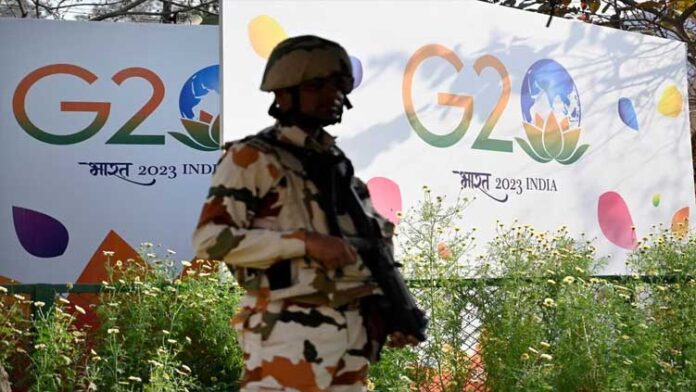China’s stance on G20 reflects its commitment to preserving sovereignty and non-participation in events held in disputed territories. This disagreement also shows their solidarity with Pakistan but it might increase the complexities of geopolitical conflicts and the challenges they pose to international diplomacy and cooperation.
China has announced its opposition to a G20 meeting scheduled to take place in Indian-occupied Kashmir. The Chinese government has stated that it will not attend the meeting, citing its firm opposition to holding any kind of G20 meetings in disputed territories. The announcement comes as India, the current chair of the G20, has been organizing a series of meetings across the country leading up to the summit in New Delhi in September.
The tensions between India and China stem from a significant development in 2019 when India divided the Muslim-majority state of Jammu and Kashmir into two federal territories, namely Jammu and Kashmir, and Ladakh. It is important to note that a considerable portion of Ladakh is currently under Chinese control. The relationship between the two nations has been strained since a military clash occurred in Ladakh in 2020, resulting in the loss of 24 soldiers.
Srinagar, the summer capital of Jammu and Kashmir, is scheduled to host the G20 tourism working group meeting from May 22nd to 24th. However, China’s opposition and decision not to attend the meeting highlight the ongoing tensions and territorial disputes between the two countries.
China’s stance reflects its unwillingness to participate in international events that are held in disputed territories. This position is consistent with its approach to territorial conflicts and its emphasis on preserving sovereignty. The absence of China from the G20 tourism meeting in Kashmir may further strain relations between the two countries and impact efforts to address regional issues through international forums.
As the G20 summit in New Delhi approaches, it remains to be seen how the disagreement over the meeting in Kashmir will impact broader discussions and cooperation among member nations. The situation underscores the complexities of geopolitical conflicts and the challenges they pose to international diplomacy and cooperation.




